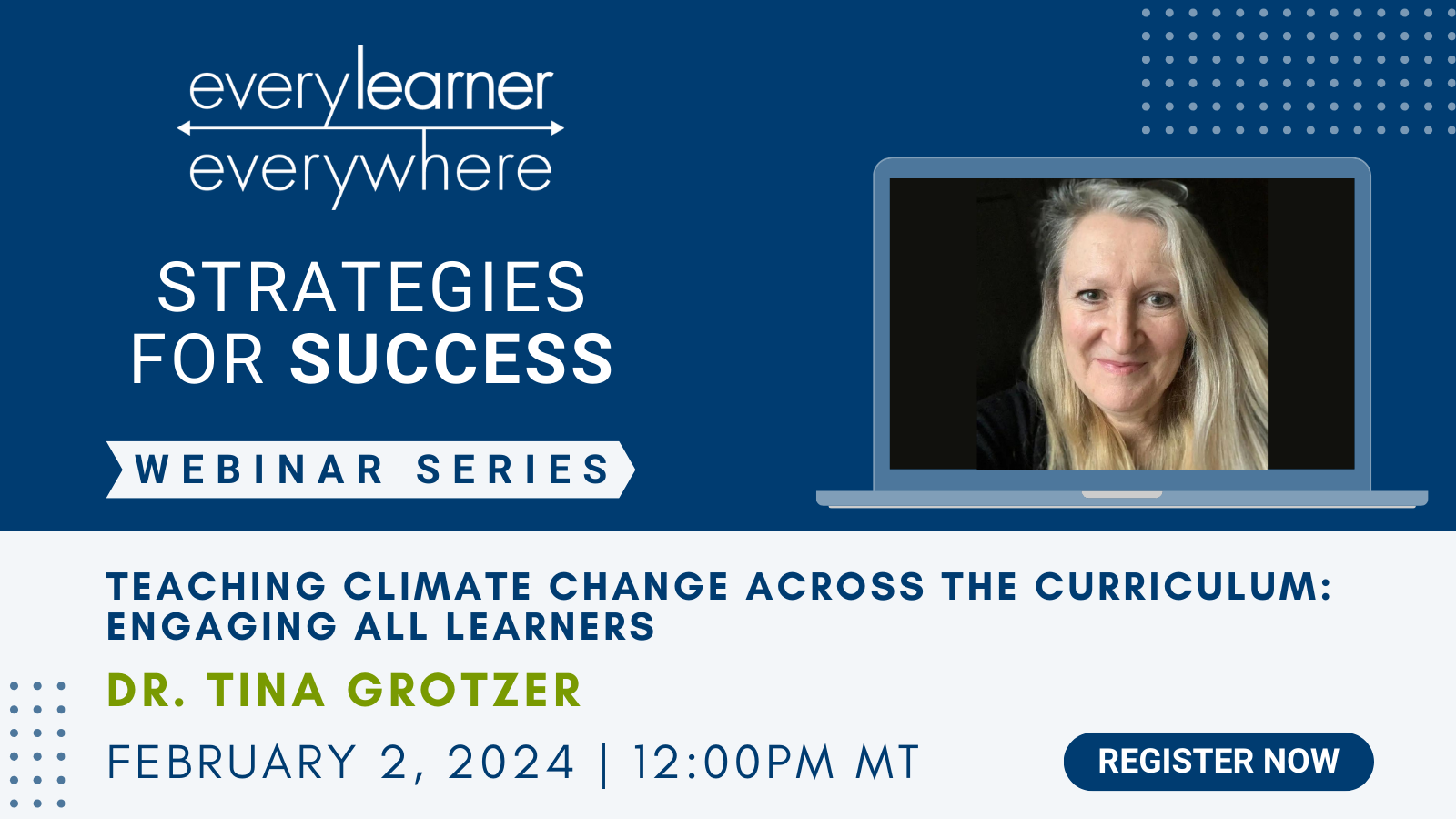
Teaching Climate Change Across the Curriculum: Engaging All Learners
- FEBRUARY 2, 2024 | 12:00 PM MT
Climate Change is one of the most consequential challenges that we will face in our lifetimes. The responsibility for creating atmospheric CO2 is not shared across the world’s populations or successive generations and yet it has wrought environmental injustices that impact the most vulnerable populations and create intractable challenges for young people and future generations. Teachers often focus on teaching the science of climate change. However, more expansive views of the inherent challenges suggest that we should consider learning opportunities across the curriculum to bring all learners into the conversation. This session will provide an overview of issues that educators should keep in mind as they design climate change curriculum. Examples of how we can engage learners in active processing related to our changing climate through instruction in the arts, literature, humanities, and social sciences, as well as new ways to teach the science of sustainability and to help learners to grasp the underlying complex causal dynamics, will be offered.
Workshop Leader
Tina Grotzer is a member of the Faculty of Education and a Principal Research Scientist at Harvard University. She is a cognitive and learning scientist who studies learning and education as it relates to the complexity of our world and specifically to sustainability and climate education. She is passionate about making approaches to climate education more inclusive, as well as shifting mindsets from short-term to long-term thinking and towards more global, collective perspectives. This work includes developing Earth Resonant Design Moves that accompany a shift in mindset from Human-Centered (UX) Design to Earth-Centered or EarthXDesign.
Tina is the Faculty Directory of the Next Level Lab (NLL) with a focus on the future of work in a volatile, uncertain, complex, and ambiguous (VUCA) world. Her work with NLL seeks to redefine visions of optimal learning and work performance with project strands focused on what it means to be an expert learner and on preparing for green jobs for the future. She is also the Principal Investigator (PI) of the Cognition in a Complex World Lab focused on the challenges of reasoning about complexity and developing instructional supports for developing sustainability-minded citizens and a PI on the EcoLEARN team which develops virtual worlds and other immersive, technology-based experiences to support understanding of ecosystems dynamics. Tina’s courses focus on leveraging research findings to develop expert learners, instructional design and pedagogy, and climate and sustainability.
Tina’s publications include many articles, book chapters, and a book on learning complex causality. Her awards include an NSF Career Award, a Presidential Early Career Award for Scientists and Engineers from the United States, and the Morningstar Teaching Award from Harvard Graduate School of Education. Links to Tina’s publications can be found here.

